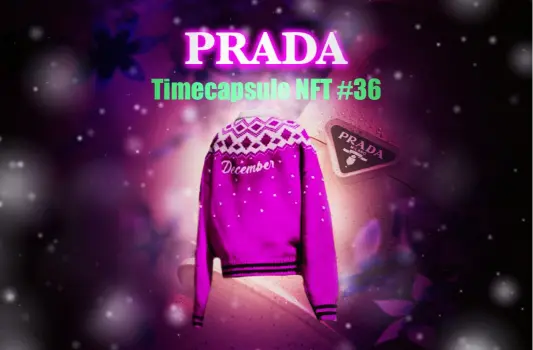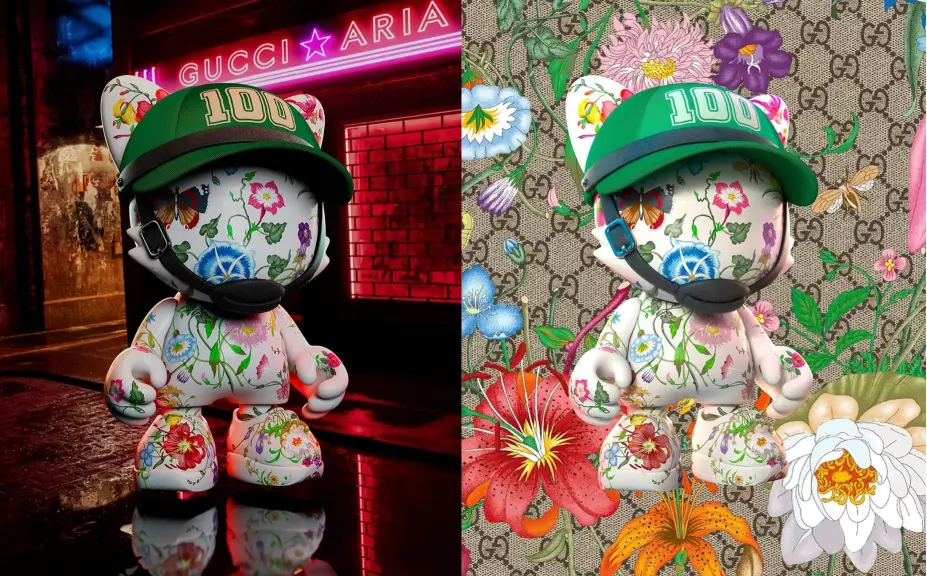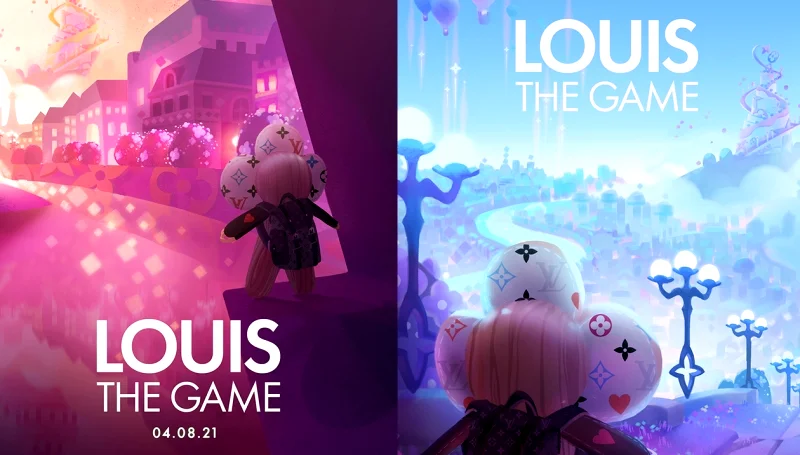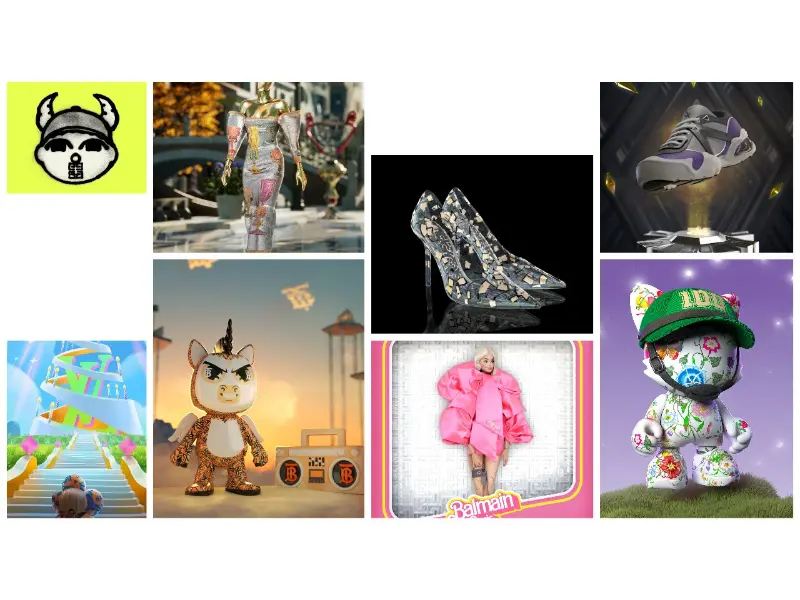- Luxury brands such as PRADA and Gucci have entered the NFT space, expanding their reach to a broader audience.
- NFTs disrupt traditional luxury by using blockchain technology to enhance accessibility and inclusivity.
- NFTs have the potential to reshape the luxury industry, offering new opportunities for brands and consumers in the digital era.
In the realm of traditional luxury goods, uniqueness, high-end quality, and exclusivity have always been synonymous with consumption. This consumption model has not only provided buyers with investment opportunities, increased their social status, and offered exclusive services but has also erected an insurmountable barrier. However, with the emerging applications of blockchain technology, NFTs are reshaping this tradition, bringing wealth and quality luxury to a wider audience and redefining the essence of luxury consumption.
Participation of luxury brands in NFTs
PRADA: Leading the charge
PRADA stands out as the only luxury brand releasing NFTs on a monthly basis. The PRADA Timecapsule series associates each physical clothing item with a limited-edition NFT, offering exclusive perks and opportunities for NFT holders to attend fashion weeks and brand events. This innovative approach represents a significant shift in how luxury fashion brands engage with their customers.

Gucci: Pioneering NFT initiatives
As early as June 2021, Gucci made its foray into NFTs by launching its first NFT video during its centennial celebrations. On February 1, 2022, Gucci unveiled the SuperGucci NFT collection, with each NFT including an Italian handcrafted ceramic sculpture bag co-designed by Gucci. This move not only showcases Gucci’s commitment to embracing digital innovation but also highlights the potential for NFTs to enhance the traditional luxury retail experience.

Louis Vuitton‘s unique NFT approach
In contrast to PRADA and Gucci, Louis Vuitton (LV) chose to venture into NFT gaming. In August 2021, LV introduced a NFT game named “Louis The Game,” allowing players to hunt for 30 hidden NFTs within the game. On June 6, 2023, LV announced a new Treasure Trunk NFT series called “Via,” meaning “path” in Latin. This series, priced at €39,000 each, includes not only limited NFTs but also a custom-made trunk. LV introduced “Soul Binding Tokens” (SBT) for Via NFTs, preventing gifting or secondary market trading. However, Via NFT holders can purchase keys to unlock future products and services, tradable on the platform. Initially, the series is open for registration to buyers in the UK, US, Canada, France, Japan, Australia, and Germany, with sales starting on June 8, accepting payments in both cryptocurrency and fiat currency.

“It’s a purely virtual world and until now, we are in the real world and we sell real products. To be sure, it’s compelling, it’s interesting, it can even be quite fun. We have to see what are the applications of this metaverse and these NFTs.”
Bernard Arnault, the founder, chairman, and CEO of LVMH (https://www.highsnobiety.com/p/bernard-arnault-lvmh-metaverse-nfts/)
While the current NFT market may appear sluggish, and the prices of top IPs have declined significantly, for Web2 luxury brands, NFTs serve as a means to cater to high-end clientele. Furthermore, these brands plan to introduce a range of tradable products and services, including virtual fashion items and exclusive experiences within the metaverse. This strategic shift underscores the adaptability of luxury brands in the face of evolving consumer preferences.
Also read: Is it all about the money? How NFT gaming’s principal appeal could also be its downfall
Why NFTs can reshape luxury consumption?
Challenging traditional exclusivity
Uniqueness has always been a key feature of traditional luxury consumption. Luxury brands have created exclusive experiences for a select few through limited releases and high-priced customisations. Motivations for purchasing luxury items often include investment, social status enhancement, and the enjoyment of high-quality services and lifestyle. However, this exclusivity has also led to luxury consumption being perceived as a symbol of privilege, often deterring ordinary individuals due to the exorbitant prices.
The role of blockchain technology
The emergence of NFTs challenges the exclusivity of traditional luxury consumption. Through blockchain technology, NFTs combine the core aspects of luxury with digital assets, making them more divisible, liquid, and equitable. The anchoring mechanism ensures the substantive backing of digital assets, while fragmentation transforms luxury items from the exclusive domain of a few into shared digital assets.
Trust and accessibility
Blockchain technology is the cornerstone of NFTs’ uniqueness. Its immutability, transparency, and anonymity inject new elements of trust into luxury transactions. Fragmentation and robust circulation mechanisms lower the barriers to luxury consumption. This new model offers a chance for a wider audience to access the wealth and quality of luxury goods.
Democratising luxury consumption
The integration of NFTs into the luxury market introduces a paradigm shift in how we perceive luxury consumption. It brings down the barriers that have historically limited access to luxury items, creating a more inclusive and egalitarian environment. NFTs democratize luxury, making it accessible to a broader spectrum of society.
The success of NFTs signifies a transformation in the luxury sector, challenging the exclusivity of traditional consumption models. In the future, we may witness the rise of more blockchain-based projects injecting vitality into the luxury market. As NFT technology continues to evolve, it holds the potential to reshape the luxury industry, offering opportunities for both brands and consumers to redefine what luxury means in the digital age.
Also read: Mythical Games launches racing game ‘NFL Rivals’ allowing players to collect NFTs
Pop quiz
Which brand launched NFT game?
A. Gucci
B. LV
C. Prada
D. YSL
The answer is at the bottom of this article.
How brands can utilise NFT?
Unlocking new revenue streams
In the post-pandemic era, while offline consumption lags, brands like Adidas, Nike, and Gucci have generated over a billion in NFT sales. Can NFTs reverse the fortunes of traditional fashion companies struggling to survive? Besides mere gimmickry, how can NFTs empower offline products and help brands rebound in sales?
Utilizing NFTs’ unique features
NFTs possess characteristics of uniqueness, reliability, transferability, and traceability. They can store information, images, videos, or 3D models on a blockchain node. Additionally, NFTs serve both as collectibles and marketing assets. In the future, metaverse e-commerce will be closely linked to virtual fashion, driving metaverse development. This applies not only to major brands and corporations but also lowers the entry barriers for individual entrepreneurs.
Addressing provenance and Co-creation
In a world rampant with design plagiarism, NFTs’ traceability can address the issue of provenance. Whether it’s music, literature, or design, NFT applications can ensure that ownership and earnings flow back to creators. Companies and brands can engage users in co-creating products through NFTs. If users can see a company’s identity in the metaverse, understand its product lines, production processes, and target customers, they can actively participate in the entire co-creation process, interacting in aspects such as product design and production processes.
Also read: NFT prices surge following Donald Trump’s arrest
In this new era of luxury consumption, NFTs reveal an unprecedented path, allowing more people to experience the unique charm of luxury in the digital world. Embracing NFTs is a natural progression for the luxury industry, as brands can exponentially expand their business within the NFT space. This potential is driven by the inherent exclusivity and rarity of luxury goods, aligning perfectly with the trend towards virtual products in the metaverse. Will you purchase a digital luxury NFT?In conclusion, the rise of NFTs in the luxury market signifies a significant shift in how we perceive and access luxury. It breaks down traditional barriers, democratizing luxury consumption and making it more inclusive. Luxury brands are actively exploring NFTs as a means to engage with their customers, offer unique experiences, and create new revenue streams. As NFT technology continues to evolve, it holds the potential to reshape the luxury industry, offering opportunities for both brands and consumers to redefine what luxury means in the digital age.
The correct answer to the pop quiz is B.LV

